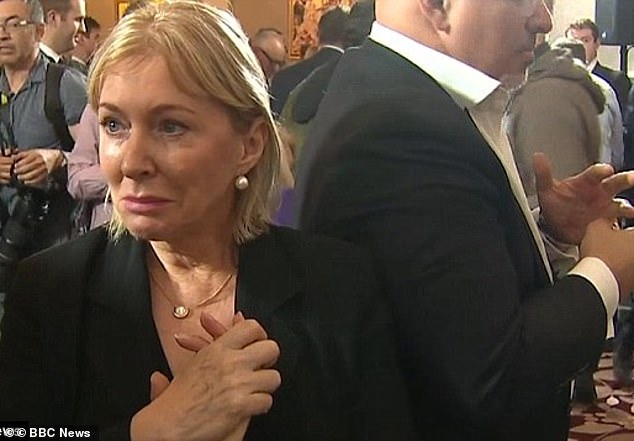Dear Bel,
I never thought I’d be writing to an advice column but there is no one else I can talk to about this.
I’m 44, and went to Ampleforth College in the 1990s. I boarded there and, overall, I remember it fondly.
The friendships, the routine, the odd serenity of Benedictine life – all of it shaped me and, until recently, I felt a genuine sense of gratitude for that experience.
But a few months ago I learned that my former housemaster – someone I knew well and respected – has been convicted of indecent and sexual assault, including of a minor during the time I was at school.
I was never harmed, or at least not that I can recall. There are no repressed memories or unspoken traumas surfacing, just an awful realisation that someone who was supposed to care for and protect us was doing the opposite behind closed doors.
Though I’ve long since lapsed in my Catholic faith, this has rocked me to the core. It’s forced me to reflect on the wider role of religion – not just Catholicism, but all organised faiths. How much hurt has been inflicted, how many people have suffered, in the name of God?
What was once a personal disillusionment has curdled into something more: I now find myself believing that organised religion, across many traditions, is the root of an extraordinary amount of pain in the world.
It’s not just the institutional cover-ups or the abuse itself – it’s the hypocrisy, the control, the guilt imposed on children, and the repeated failures to protect the vulnerable.
I used to think religion was a force for good that had been distorted by flawed humans. Now, I’m not so sure. Maybe the distortion is built in.
I don’t feel traumatised, but I do feel shaken – morally and spiritually.
Part of me wonders if I’m overreacting; after all, I wasn’t harmed. But I can’t shake the bitterness that has crept in, or the sense of betrayal – not just by individuals but by a system I once trusted.
Bel, is it possible to hold on to any kind of faith after something like this? Or is walking away the only honest path?
Robert

This is one of the most interesting letters I’ve ever received and I’m grateful to you for raising an issue close to my heart.
This column is necessarily preoccupied with relationships – even though I admit I get tired of reading about sex endlessly elsewhere. Yet you, too, are writing about a relationship – and it’s an important one. You wrestle with thoughts about the Christian God which (like it or not) are embedded in your DNA.
Brought up a Catholic, you began to question that faith even before the man you knew was convicted of these crimes. Yet you write because of an acute sense of disillusion triggered by his conviction.
Your leading question, ‘How much hurt has been inflicted, how many people have suffered, in the name of God?’ is surely echoed by millions as they watch news of the latest atrocities around the world and mourn the history of humankind from Biblical times, even before the Crusaders shed so much blood. The eternal question of why any God would permit innocent children to suffer is asked by all but religious zealots.
I, too, have struggled. I found Methodism as a receptive 15-year-old, then rejected all religion when I joined CND at 17 and spent sleepless nights worrying about the bomb. How could God have allowed it to be invented?
Explanations about ‘free will’ didn’t convince me at all. For years I called myself an agnostic, because I couldn’t quite embrace atheism. Now I embrace Christianity, not because I have overcome doubt, but due to my pride in the great Christian culture of the West that has given us such sublime glories of art, literature and music, as well as ethical teachings that embody all that’s best in human nature.
To be honest, I doubt you will ever truly ‘walk away’ from that. Wait and see.
You might sympathise with Clement Attlee (Labour prime minister when I was born) who believed in ‘the ethics of Christianity’ but not the ‘mumbo jumbo’. So just read the Sermon on the Mount (Matthew, chapters 5-7) and there you’ll meet the best ethical teaching in the world.
That’s what you should focus on, instead of human wickedness. After all, you wouldn’t dismiss all art after looking at the hideous daub of a disturbed person, would you? You wouldn’t say all books are damaging because of the existence of Mein Kampf.
That teacher you respected who fell so spectacularly from grace…he no more represents Christianity than Iran’s leader Ali Khamenei represents Islam. A whole faith can’t be judged by its most weak – or most cruel – practitioners. Always reflect on the core of goodness, not evil. The essential principle of empathy is not only taught by Jesus of Nazareth. It is the Golden Rule of civilisation – which can be summed up as: ‘If you don’t like it yourself, then best not do it to someone else.’
This appears in various permutations in Judaism, Hinduism, Buddhism, Confucianism, Taoism, Jainism, the Baha’i Faith and Islam.
Of course, it will be betrayed, again and again, by zealots, fanatics, small minds and madmen. But that doesn’t make the principle wrong. It merely proves that the ancient battle between good and evil is still waged every single day.
The most well-meaning doctrines will be traduced through the deadly sins within human nature. After all, fervent socialists can be as greedy and corrupt as anybody.
An individual (like your former teacher) might betray the teachings he seemed to embody, but that doesn’t mean those teachings have betrayed you.
So I just hope you will continue to think, question and wonder until you die.
My friend’s husband is still cheating
Dear Bel,
For a long time I’ve been suspicious that my friend’s husband is leading a double life.
A long time ago he left my friend for another woman for a short time, then went back to the marriage. But I reckon he’s continued with the relationship ever since.
The excuses my friend gives for her husband’s constant absences are like works of fiction, and I often wonder if she actually knows the truth but doesn’t want to face life alone (they are in their mid-60s).
The other day, someone I know saw this man with the other woman. I am now faced with knowing for certain the husband is being unfaithful and it’s weighing heavily.
My friend never told me about her husband leaving her (it was he who confided), but if we ever talk about infidelity, she’ll say, defensively: ‘Everyone is entitled to one mistake.’
I dread seeing her husband now, and even feel uncomfortable about seeing my friend.
In the recent past, I’ve seen him being unpleasant to her and he never shows her any affection. I don’t know what to do.
Helena
Surely this is one of those times in life when you have to accept you can do nothing.
What are the alternatives? You could tell your friend that her husband is cheating on her and probably never stopped; you could tell her husband that you know what he’s up to and unless he stops you will blow the whistle; or you could put the word around mutual friends and suggest they cut him dead to let him know the collective moral disapproval of his affair and exploitation of his long-suffering wife.
What is likely to happen in each of those cases? You tell her but she blanks you as the bearer of news she doesn’t want to hear – so that’s the end of the friendship.
You remonstrate with him and he flatly denies it and suggests you mind your own business. You inform the friends and they shake their heads and turn away – simply because they agree with me that it is beyond their power to achieve anything.
Do you see? It’s understandable that you feel morally affronted, but I just can’t see how translating that into any sort of action would do any good.
Your point about the wife colluding in her husband’s infidelity is a good one. Many years ago, I knew a couple with the same pattern: he had endless affairs, once with the family nanny almost under the wife’s nose, and she said nothing. She had the status – and, while her pesky husband was getting sex from the nanny, it kept him from bothering her. If that makes me sound cynical, it’s probably because I am.
As I so often say, none of us can ever be sure what’s going on in another couple’s marriage. If it upsets you to be with this couple, the only thing you can do is step back and avoid them whenever possible.
But what would happen if your friend turned to you one day and asked why you were being so unfriendly? That would put you on the spot – and I can see it would be horrible to tell a lie. So in that case you’d have to mumble evasions or tell the truth.
But remember, ‘shoot the messenger’ is a phrase that refers to blaming or punishing the bearer of bad news, even though they are not responsible for the bad news itself.
It highlights a common human tendency to direct frustration and anger towards the person who delivers negative information, rather than addressing the root cause of the problem. So be careful.







